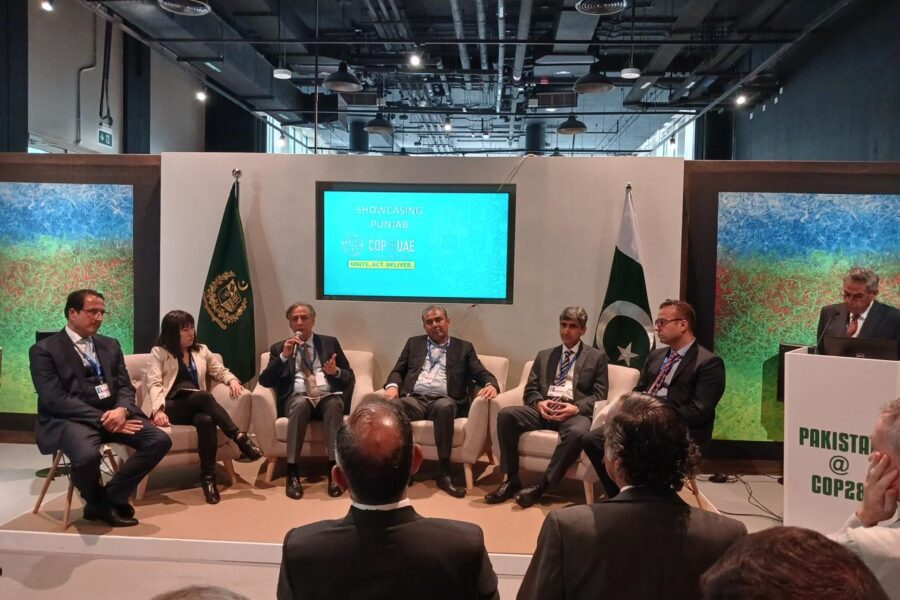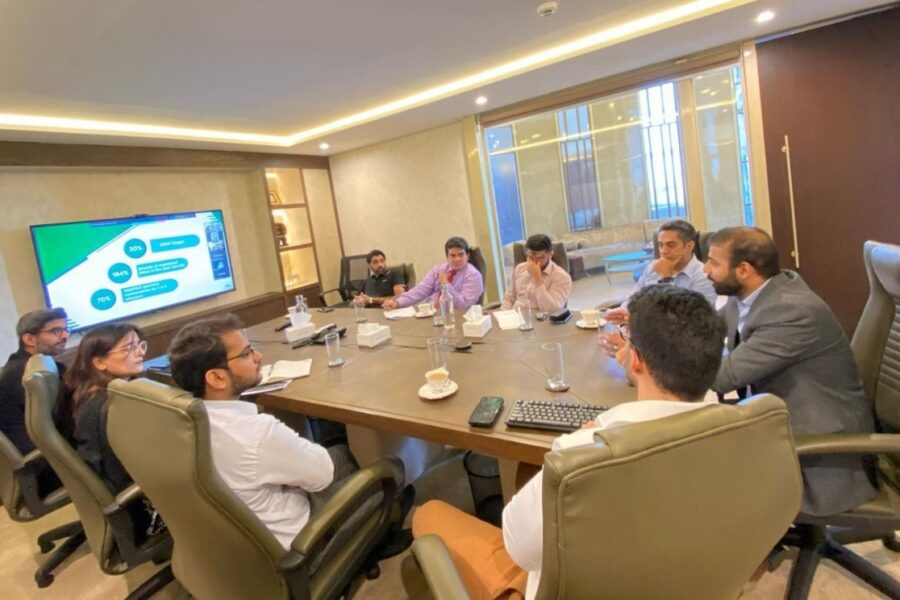COP28 UAE, Day 6
In a significant development, the Danish Energy Agency, in collaboration with key stakeholders, presented a comprehensive roadmap for Pakistan’s energy transition at an event attended by prominent figures in the energy sector. Semee Ezdi, a member of the Senate of Pakistan, and Kristoffer Bottzauw, Director General of the Danish Energy Agency, delivered opening speeches, setting the stage for a robust discussion on the country’s path towards sustainable energy.
The panel, comprising experts such as Nadeem Niwaz (Country Manager of Danish Energy Agency), Mr. Shah Jahan Mirza (Managing Director of the Private Power & Infrastructure Board), Dr. Sardar Mohazzam (Managing Director of the National Energy Efficiency and Conservation Authority), Bothilde Benedikt Nielsen (Senior Economist at Energinet), and Mauro G. Soares (Co-founder and COO of RELP), engaged in a thorough examination of Pakistan’s challenges and opportunities in meeting its commitments as a signatory of the Paris Agreement.
Kristoffer Bottzauw, Director General of the Danish Energy Agency, expressed enthusiasm for the collaboration, stating,
“In the spirit of international cooperation, Denmark is looking forward to continuing on this journey under Denmark Energy Transition Initiative (DETI) together with Pakistan, seeking solutions that will shape a cleaner, more sustainable future for Pakistan and the world.”
Kristoffer Bottzauw, Director General of the Danish Energy Agency.
The recommendations highlighted the complexities Pakistan faces in achieving necessary carbon reductions due to its unique local circumstances. The panel emphasized the need for Pakistan to intensify efforts in deploying renewable energy solutions, incorporating flexibility measures like inter-weekly storage, more flexible hydro scheduling, and demand response options. International partnerships were identified as crucial for supporting Pakistan’s long-term decarbonization efforts in the power and energy sector.
However, the discussion also brought to light the limited analysis available, underscoring the necessity for a more detailed examination of technological opportunities and investment requirements beyond 2045. The panel stressed the importance of a cost-efficient roadmap to guide the decarbonization of Pakistan’s power sector effectively.
As Pakistan strives to align with global climate goals, the insights and recommendations from this event will likely play a pivotal role in shaping the nation’s energy policies and strategies for a sustainable and low-carbon future. The call for more detailed analysis reflects a commitment to ensuring a thorough understanding of the challenges and opportunities ahead, marking a crucial step in Pakistan’s journey toward a greener energy landscape.



Leave a Reply